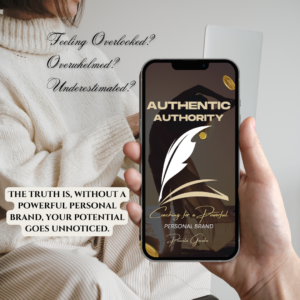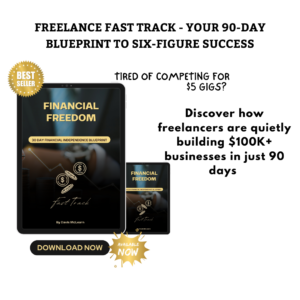Understanding Anxiety: The Science Behind the Panic
Anxiety is a complex psychological phenomenon characterized by feelings of unease, worry, and fear. It can manifest in various ways, from mild apprehension to debilitating panic attacks. At its core, anxiety triggers a series of physiological responses that prepare the body for ‘fight or flight’. This response is orchestrated by the autonomic nervous system, which activates the release of stress hormones such as cortisol and adrenaline. These hormones accelerate heart rate, increase blood pressure, and heighten sensory perception, equipping an individual to respond to perceived threats.

Common triggers for anxiety can encompass environmental factors, personal experiences, and biological predispositions. For instance, stressful life events, such as job loss or relationship breakdowns, can serve as catalysts for heightened anxiety. Concurrently, individuals with a family history of anxiety disorders may have a genetic predisposition, making them more susceptible to anxiety-related symptoms. Additionally, environmental stimuli, such as social interactions or public speaking, often exacerbate feelings of anxiety, creating a cycle of avoidance and increased fear.
Various types of anxiety disorders are recognized in clinical psychology, including generalized anxiety disorder (GAD), panic disorder, social anxiety disorder, and specific phobias. Each disorder presents unique characteristics and symptoms. For example, GAD is often marked by chronic, excessive worry about various aspects of daily life, while panic disorder is characterized by sudden and intense episodes of fear accompanied by physical symptoms. The prevalence of these disorders can significantly affect individuals’ mental and physical health, resulting in decreased functioning and quality of life. Understanding the science behind anxiety is crucial for acknowledging its impact and working towards effective management strategies.
Coping Strategies: Tools to Manage Anxiety
Managing anxiety effectively requires a multifaceted approach, and incorporating practical coping strategies can significantly empower individuals. One widely recognized technique is mindfulness, which involves being present in the moment without judgment. To practice mindfulness, start by finding a quiet space. Sit comfortably, close your eyes, and focus on your breathing. Observe each breath, noting the sensation of air entering and leaving your body. If distractions arise, gently redirect your focus back to your breath. Regular mindfulness practice can lead to improvements in overall mental clarity and emotional resilience.

Fearproof: Turning Failure into Your Greatest Superpower
Breathing exercises also serve as a valuable tool for anxiety management. One effective method is the 4-7-8 technique. Begin by exhaling completely through your mouth, then inhale quietly through your nose for a count of four. Hold your breath for seven seconds, and then exhale completely through your mouth for a count of eight. This rhythmic pattern can help reduce anxiety levels by promoting relaxation and calming the nervous system. Engaging in this exercise several times a day, especially during moments of heightened anxiety, can be beneficial.
Grounding exercises are another useful strategy, particularly when individuals experience overwhelming emotions. One simple grounding technique is the 5-4-3-2-1 exercise. Identify five things you can see around you, four things you can touch, three things you can hear, two things you can smell, and one thing you can taste. This approach helps anchor individuals in the present moment, alleviating feelings of panic by redirecting focus away from anxiety-provoking thoughts.

Furthermore, establishing a daily routine can provide structure and predictability, both of which are essential for managing anxiety. Incorporating regular physical activity, healthy eating, and sufficient sleep into daily life contributes to overall well-being. Additionally, seeking social support by connecting with friends, family, or support groups can foster a sense of belonging and reduce feelings of isolation. By implementing these coping strategies, individuals can enhance their ability to manage anxiety effectively.
Professional Help: When and How to Seek Support
Anxiety can be a debilitating condition, affecting daily life and overall well-being. Acknowledging the need for professional help is a crucial step in managing anxiety effectively. The landscape of mental health support offers a variety of options, including therapy, counseling, and medication, each serving distinct purposes tailored to individual needs.
Therapy, particularly cognitive-behavioral therapy (CBT), is highly regarded for its efficacy in treating anxiety disorders. CBT fosters understanding of negative thought patterns and equips individuals with coping strategies to challenge these thoughts and behaviors. Counseling, on the other hand, often focuses on providing a supportive space to explore emotional issues while promoting personal growth. It may be especially beneficial for individuals grappling with situational anxiety or stressors.

Medication can also play a significant role in managing anxiety, particularly in cases where symptoms are severe or persistent. Antidepressants, anti-anxiety medications, and beta-blockers may be prescribed by a psychiatrist to help alleviate symptoms, allowing individuals to engage more fully in therapeutic practices. It is essential, however, to evaluate the need for medication carefully, discussing potential benefits and side effects with a qualified healthcare provider.
Medication can also play a significant role in managing anxiety, particularly in cases where symptoms are severe or persistent. Antidepressants, anti-anxiety medications, and beta-blockers may be prescribed by a psychiatrist to help alleviate symptoms, allowing individuals to engage more fully in therapeutic practices. It is essential, however, to evaluate the need for medication carefully, discussing potential benefits and side effects with a qualified healthcare provider.
Finding the right support is paramount. It is advisable to seek mental health professionals with proper credentials and experience in treating anxiety. Recommendations from primary care doctors, online directories, or local mental health organizations can facilitate the search for suitable practitioners. During initial consultations, individuals should inquire about the therapist’s approach, ensuring it aligns with their preferences and comfort levels.
In conclusion, the path to overcoming anxiety can be bolstered by seeking professional help. By integrating therapy or counseling with medication when necessary, individuals may discover a comprehensive approach to managing anxiety effectively. Combining these resources with personal coping strategies can lead to a balanced and sustained improvement in mental health.
Building a Sustainable Peace: Long-term Strategies for Well-being
To foster a lasting sense of peace and well-being, it is vital to adopt long-term strategies that extend beyond immediate coping mechanisms for anxiety. Central to these strategies are lifestyle changes that address essential pillars of health, including nutrition, sleep, and exercise. A balanced diet rich in whole foods can significantly enhance mood and energy levels, while adequate sleep is crucial for cognitive function and emotional regulation. Regular physical activity not only alleviates symptoms of anxiety but also plays a significant role in building resilience, enabling individuals to better cope with life’s challenges.

Building resilience incorporates developing skills that help navigate stress and adversity. This can be achieved through practices such as mindfulness, which encourages a present-focused awareness that diminishes anxiety. Engaging in cognitive-behavioral techniques can aid in reframing negative thought patterns, thus empowering individuals to respond to stressors in healthier ways. Creating a balanced routine that includes time for relaxation, hobbies, and self-reflection can further enhance one’s ability to cope with stress and foster a sense of control over one’s life.
Community engagement cultivates a supportive network that can be invaluable in times of emotional distress. Strong social connections promote a sense of belonging and security, which are essential for maintaining mental health. Whether it involves connecting with friends, family, or support groups, actively investing in relationships plays a crucial role in emotional well-being. Developing a long-term plan that includes continuous self-care practices, realistic goal-setting, and social interaction can aid individuals in navigating life’s ebbs and flows with confidence and tranquility. These efforts form the foundation for sustainable peace, allowing one to thrive amidst life’s inevitable uncertainties.
On sale products
-
Affirm Your Success: Building Resilience Through Positive Thinking
Original price was: $49.99.$24.99Current price is: $24.99. -
Automated Machine Learning: A Practical Guide for Aspiring Entrepreneurs
Original price was: $130.00.$9.99Current price is: $9.99. -
Fearproof: Turning Failure into Your Greatest Superpower
Original price was: $49.99.$9.99Current price is: $9.99. -
Freelance Fast Track – Your 90-Day Blueprint to Six-Figure Success
Original price was: $99.99.$10.99Current price is: $10.99.





No responses yet